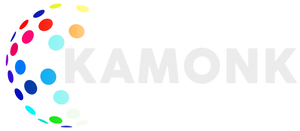Benefits of Matter
Matter is based on a common belief that smart home automation should be safe, reliable, and easy to use. The issue will facilitate communication between smart home devices, mobile apps, and cloud services based on the Internet Protocol (IP). It will specify a certain set of IP-based networking technologies for device certification.
Matter is the promising future where smart gadgets will work consistently with each other, taking the uncertainty out of the buying process. Thanks to this trust, consumers can choose from a wider variety of brands they prefer and enjoy the pleasure of a connected, safe and easy-to-use home.
For developers
Matter is an IP-based unified connection protocol that allows you to focus on building advanced solutions and accelerating market approaches. It helps you connect and create secure and reliable IoT networks.
For retailers
By streamlining the buying process, bringing the smart home category to more merchants and reducing operational costs. Matter is the trusted IoT compatibility standard that guides every smart home development.
Matter timeline
On December 18, 2019, Amazon, Apple, Google, Samsung SmartThings, and the Zigbee Alliance announced their partnership and the formation of the Project Connected Home over IP working group.
The ambitious project has experienced several delays. Project CHIP, as it was once known, was originally scheduled to release in late 2020. After being rebranded as Matter in August 2021, the release date was pushed back to mid-2022. The launch has now been pushed back to fall 2022, just three months after we anticipated the arrival of the first Matter gadgets.
The last postponement is scheduled for fall 2022, as announced by the CSA. The latest decline is due to "unprecedented interest", according to the CSA. The wait is necessary to complete the software development kit (SDK) that hardware manufacturers will use to integrate their devices into the Matter ecosystem. Since more systems have taken up the standard than expected, the SDK code must be improved to ensure that everything will work together as expected. It has been found that the set of features determined for the specification of the materials has been completed, but an additional time to work on certain crucial parts of the SDK must be spent to stabilize, adjust, adjust and increase the quality of the code.
The revised calendar indicates that we can still see material objects this year, but perhaps less and later than expected. The first publication includes 130 products of 50 companies in 15 currently tested categories. These devices include wireless access points, bridges, television, intelligent locks, thermostats, blinds and switches. They also include smart light bulbs, plugs and switches. Once the Matter standard is published, companies in this first wave will be ready to apply for certification and start shipping to users.
Subscribe to our newsletter
Promotions, new products and sales. Directly to your inbox.

